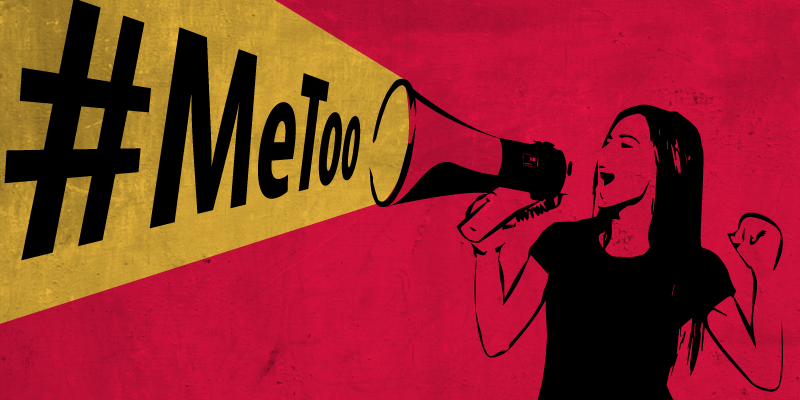#MeToo Movement in South Korea

By Mark Sample, Contributing Writer
When American actress Alyssa Milano tweeted #MeToo and encouraged women to get involved to “give people a sense of the magnitude of the problem”, nobody would have predicted how far and wide the feminist movement would stretch. As the tag went viral throughout America during October 2017, socially conservative South Korea remained relatively quiet. Feminism was a term, at the time, that most Koreans would not want attributed to them.
In fact, barely a month before #MeToo enveloped Korea, K-pop idol Son Na-eun of Apink faced a storm of criticism for promoting feminism when she posted a photo of her phone cover that read “GIRLS CAN DO ANYTHING.” Up to this point, gender inequality was a facet that remained largely under the radar as most people chose to ignore it, and the rest feared the consequences of initiating a debate on the topic. Women have traditionally faced mockery for bringing up these issues and female victims of sexual harassment or assault had to overcome suspicion, with those in power, men, likely to try to silence or tarnish them.
Rather than remain in the shadows, however, women are standing up and letting their voices be heard. It took a few brave individuals to set the wheels in motion, with hundreds of Korean women coming forward to tell their stories of maltreatment at the hands of men. The key inspiration was Seo Ji-hyeon, who alleged during a live interview with a news channel that a former South Korean Ministry of Justice official, Ahn Tae-geun, groped her during a funeral in 2010.
Allegations against a presidential hopeful, Ahn Hee-jung, an esteemed poet, Ko Un, and an award winning movie director, Kim Ki-duk, poured more fuel on the fire, which enabled the movement to grow week-by-week. As 2018 has progressed, both traditional and social media networks have become dominated by discussions about gender discrimination on the peninsula. Previously underreported facts such as Korean women receiving less than a third of men’s salaries, and women filling just 2% of Korean boardrooms have become common knowledge and topics of debate throughout the nation.
Like the country has seen on the political front in recent times, a true sign of change on the horizon comes when the people take to the streets to protest in large numbers. March saw the #MeToo movement hold its own marathon protest in downtown Seoul when almost 200 woman took the microphone to tell their personal stories of sexual harassment for 2018 minutes non-stop.
Changes are starting to take place with the Moon Jae-in administration announcing extensions to the statute of limitations in sexual abuse cases, and a process that allows victims to report crimes anonymously. The president, nevertheless, noted that the country “cannot solve this through laws alone and we need to change our culture and attitude”.
As Moon notes, it is changes to the culture and attitudes that will prove the most challenging obstacle in altering what was once a patriarchal society. This is not an easy task but there is a clear determination amongst the young generation, particularly, to make a breakthrough and the #MeToo movement continues to be a key stimulus.
